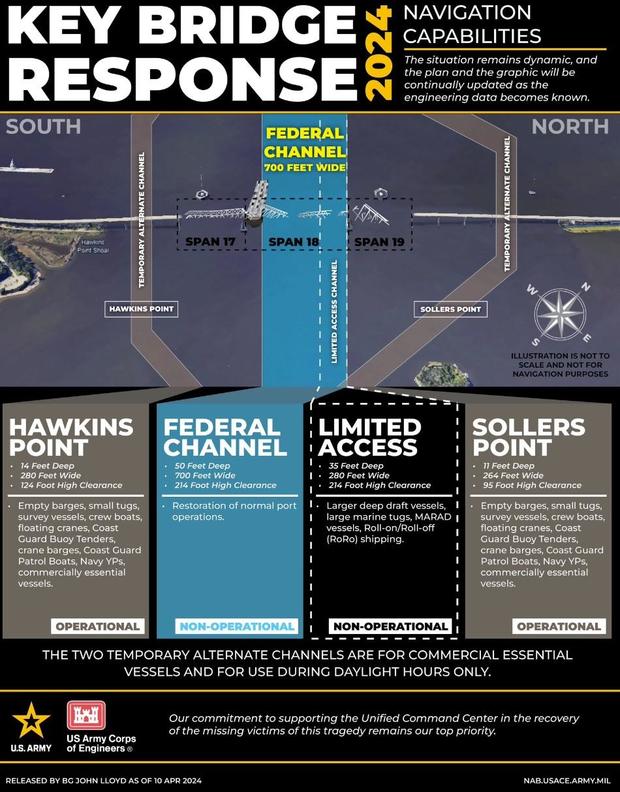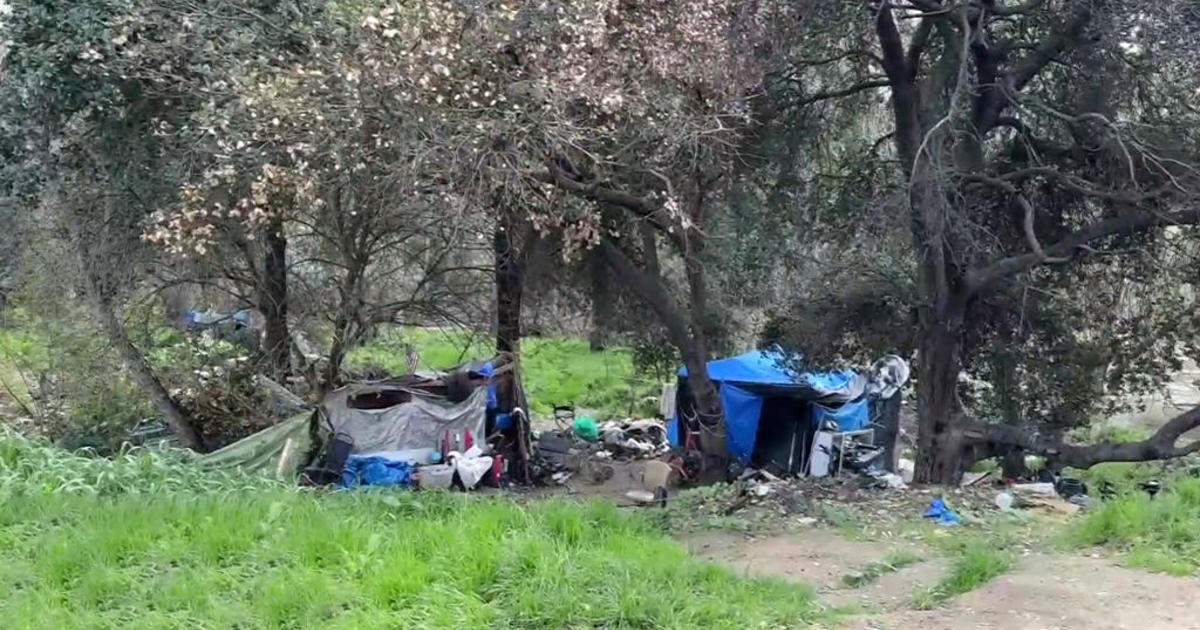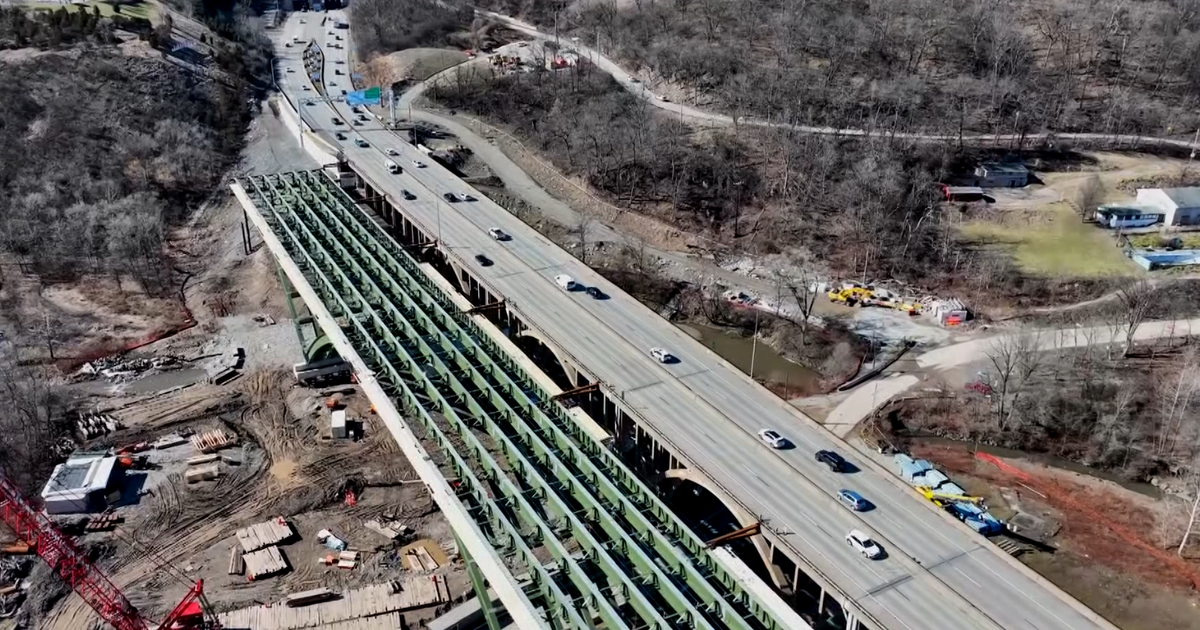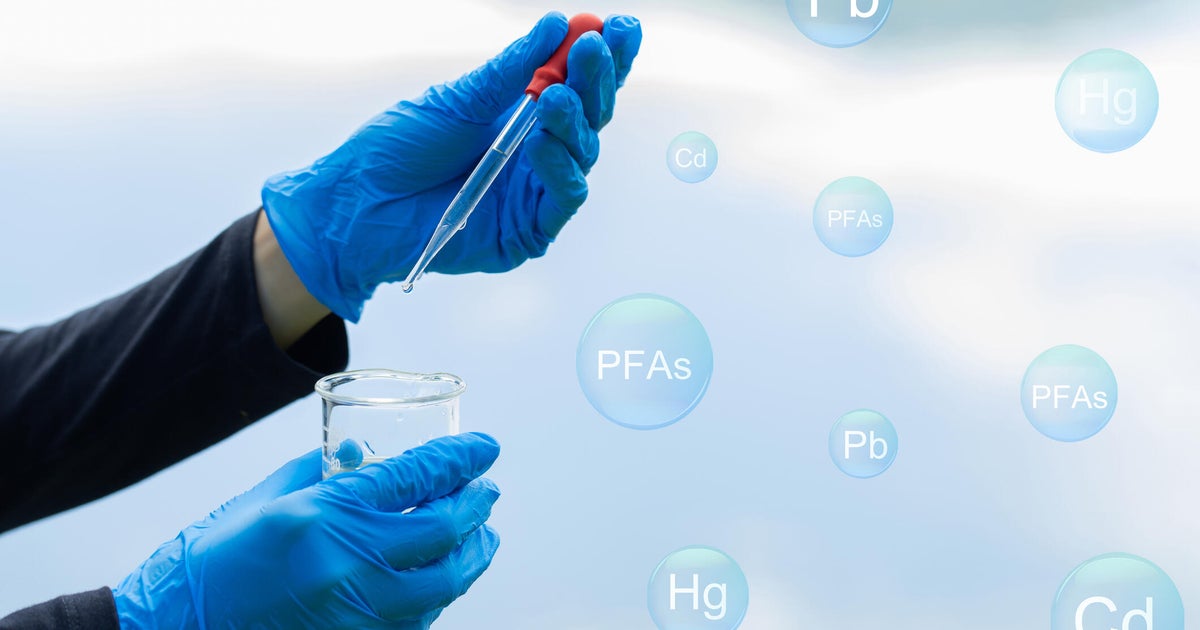Chesapeake 1000, largest floating crane on Eastern Seaboard, used to clear Key Bridge collapse site
BALTIMORE - The Unified Command team working at the wreckage site of the Key Bridge in the Patapsco River used the crane barge Chesapeake 1000 for some heavy lifting on Sunday.
The Chesapeake 1000 is the largest floating crane on the Eastern Seaboard. The crane is being used to move a large piece of supporting steel from the bridge. That will assist in opening a limited access channel to will allow one-way ship traffic to the Port of Baltimore.
Explaining the alternate channels
The Unified Command provided a detailed map that outlines two temporary alternate channels opened by the U.S. Coast Guard following the collapse of the Key Bridge.
The Hawkins Point Channel is 14 feet deep and 280 feet wide with 124 feet of clearance to the south of the Key Bridge wreckage site. This channel is for empty barges, small tugboats, survey vessels, crew boats, floating cranes, Coast Guard Buoy Tenders, crane barges, Coast Guard patrol boats, Navy YPs and commercially essential vessels.
The Sollers Point Channel is 11 feet deep and 264 feet wide with 95 feet of clearance to the north of the wreckage site. This passageway is for empty barges, small tugboats, survey vessels, crew boats, floating cranes, Coast Guard Buoy Tenders, crane barges, Coast Guard patrol boats, Navy YPs and commercially essential vessels.
A Limited Access Channel is in the works. This channel will be 35 feet deep, 280 feet wide with 214 feet of clearance at Span 18 of the Key Bridge site. This will allow for larger deep draft vessels, large marine tugboats, MARAD vessels, and Roll-on/Roll-off shipping boats to get through.
To get back to normal Port of Baltimore operations, a 50-foot deep, 700-foot wide channel will have to be reopened.
The temporary alternate channels are for use only in daylight hours.
More funding for those relying on Port of Baltimore?
Maryland Governor Wes Moore on Friday announced more assistance for those businesses and workers who rely on the Port of Baltimore, including grants of up to $200,000.
Last week, a priority bill was passed to give some financial relief to those who have been impacted by the bridge collapse and its impact on the port.
The measure authorizing the use of the state's rainy day fund to help port employees had strong support in the Maryland General Assembly.
"One of our top priorities for Sine Die is to pass the PORT Act to assist all who have been impacted by the collapse of the Key Bridge," Maryland House Speaker Adrienne Jones, a Baltimore County Democrat, said in a statement, referring to the Latin phrase used for the last day of the session.
The bridge collapse impacts about 15,300 jobs that are directly related to port activity, Overall, about 140,000 people are impacted in some way.
This measure would temporarily pay the wages of port workers and provide support for workers who are not covered by unemployment insurance.
The measure would also help businesses cover payroll and provide incentives for companies to return to the port once it fully reopens.
Two construction workers still missing
Two construction workers remain missing after the Key Bridge collapsed on March 26, when it was struck by a cargo ship.
So far, crews have recovered the bodies of 35-year-old Maynor Yasir Suazo-Sandoval, 35-year-old Alejandro Hernandez Fuentes and 26-year-old Dorlian Castillo Cabrera, and another unidentified man who was recovered on Sunday.
Still missing are 40-year-old Miguel Luna, 35-year-old Jose Mynor Lopez and a man named Carlos, whose full name has not been released.
They were repairing potholes on the bridge when the cargo ship crashed and they were knocked into the river.








